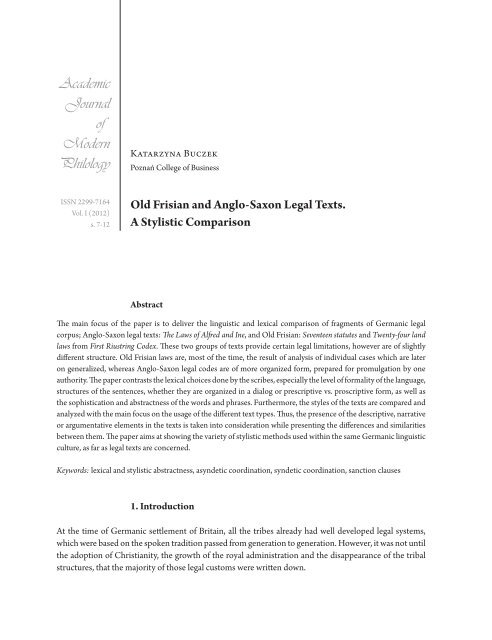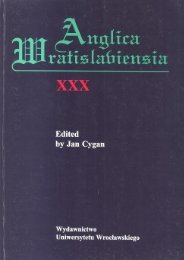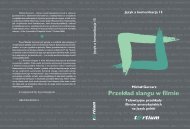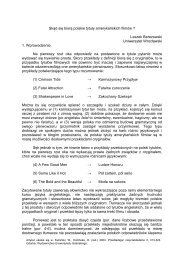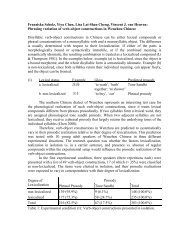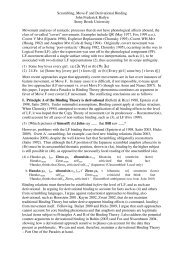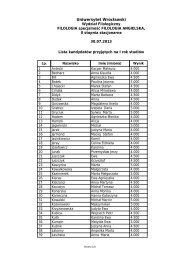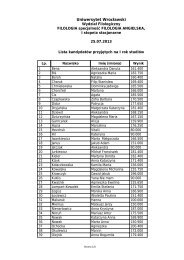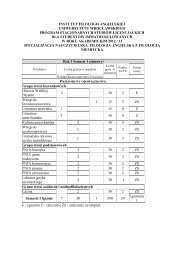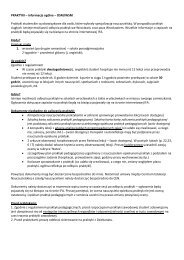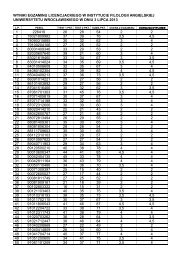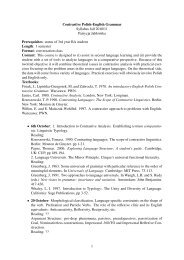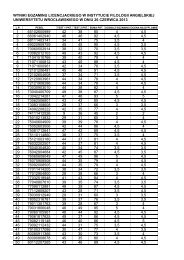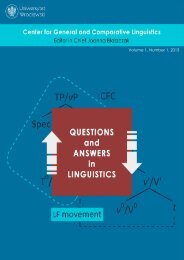Academic Journal Modern Philology
Academic Journal Modern Philology
Academic Journal Modern Philology
You also want an ePaper? Increase the reach of your titles
YUMPU automatically turns print PDFs into web optimized ePapers that Google loves.
<strong>Academic</strong><br />
<strong>Journal</strong><br />
of<br />
<strong>Modern</strong><br />
<strong>Philology</strong><br />
Katarzyna Buczek<br />
Poznań College of Business<br />
ISSN 2299-7164<br />
Vol. I (2012)<br />
s. 7-12<br />
Old Frisian and Anglo-Saxon Legal Texts.<br />
A Stylistic Comparison<br />
Abstract<br />
The main focus of the paper is to deliver the linguistic and lexical comparison of fragments of Germanic legal<br />
corpus; Anglo-Saxon legal texts: The Laws of Alfred and Ine, and Old Frisian: Seventeen statutes and Twenty-four land<br />
laws from First Riustring Codex. These two groups of texts provide certain legal limitations, however are of slightly<br />
different structure. Old Frisian laws are, most of the time, the result of analysis of individual cases which are later<br />
on generalized, whereas Anglo-Saxon legal codes are of more organized form, prepared for promulgation by one<br />
authority. The paper contrasts the lexical choices done by the scribes, especially the level of formality of the language,<br />
structures of the sentences, whether they are organized in a dialog or prescriptive vs. proscriptive form, as well as<br />
the sophistication and abstractness of the words and phrases. Furthermore, the styles of the texts are compared and<br />
analyzed with the main focus on the usage of the different text types. Thus, the presence of the descriptive, narrative<br />
or argumentative elements in the texts is taken into consideration while presenting the differences and similarities<br />
between them. The paper aims at showing the variety of stylistic methods used within the same Germanic linguistic<br />
culture, as far as legal texts are concerned.<br />
Keywords: lexical and stylistic abstractness, asyndetic coordination, syndetic coordination, sanction clauses<br />
1. Introduction<br />
At the time of Germanic settlement of Britain, all the tribes already had well developed legal systems,<br />
which were based on the spoken tradition passed from generation to generation. However, it was not until<br />
the adoption of Christianity, the growth of the royal administration and the disappearance of the tribal<br />
structures, that the majority of those legal customs were written down.


